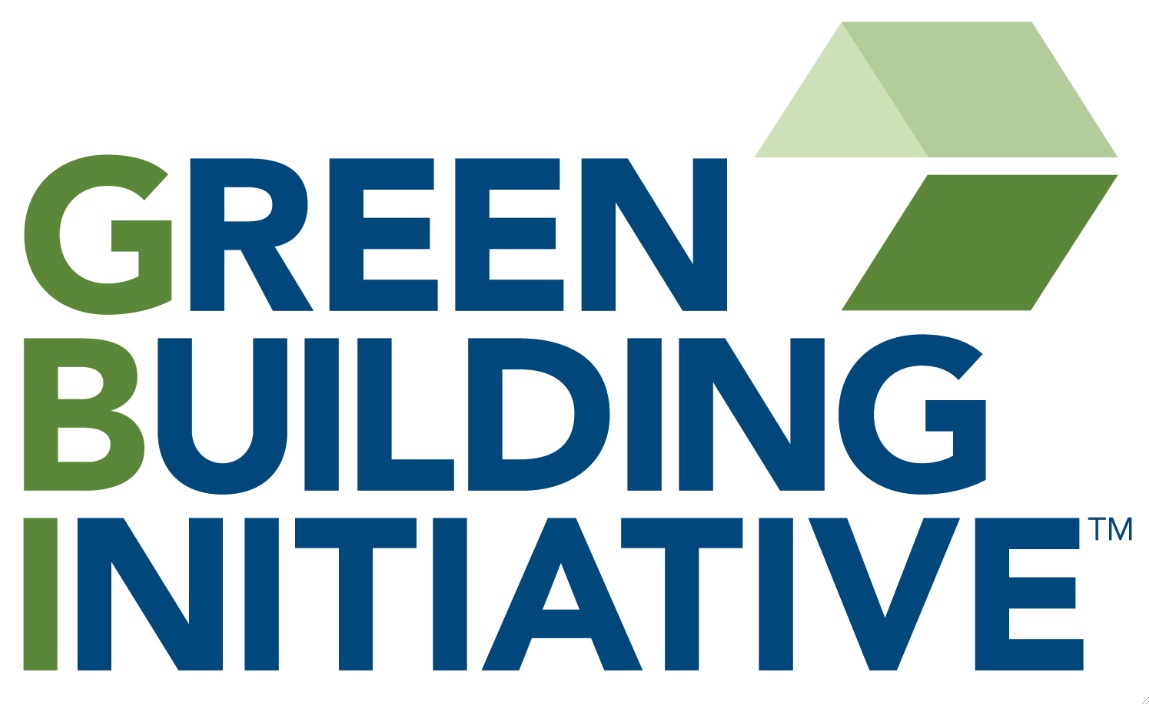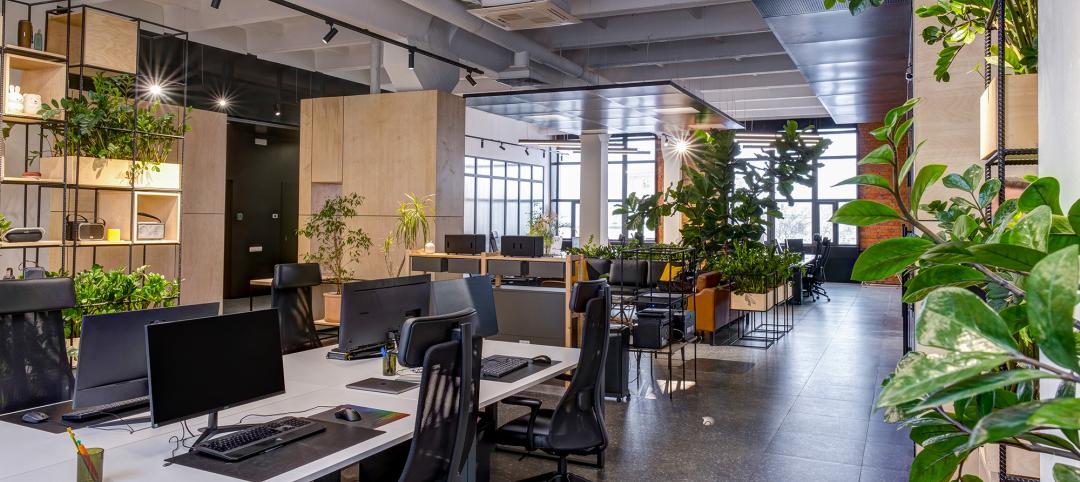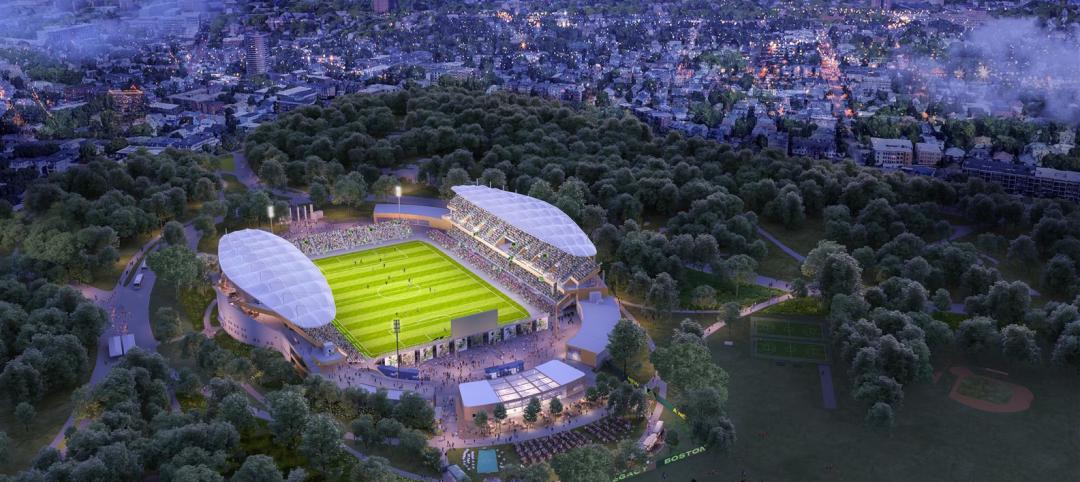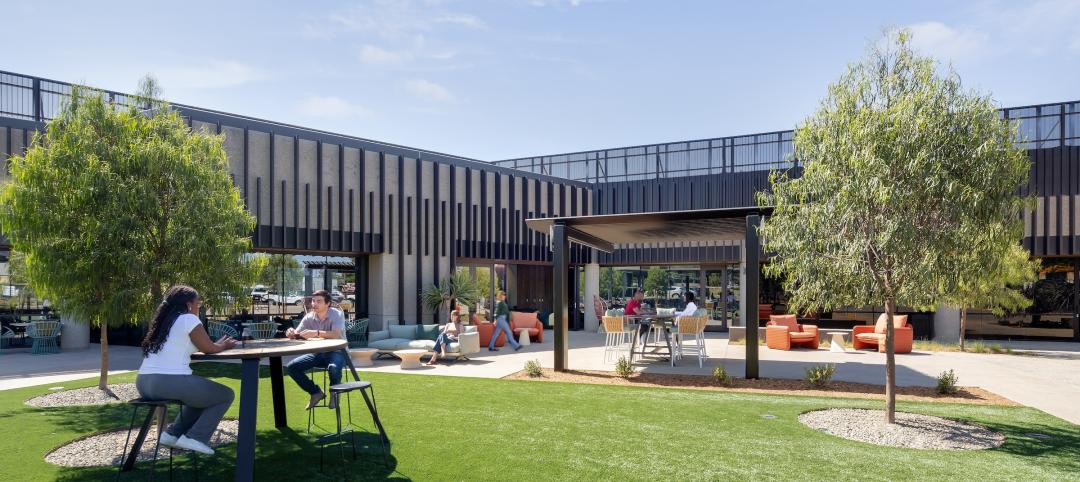The Green Building Initiative (GBI) announced today that it has named Jerry Yudelson as its president to accelerate growth of the non-profit and further leverage its green building assessment tools, including the highly recognized Green Globes® rating system, as it brings green building options to a larger audience of owners, designers, facility managers and investors.
(Bonus coverage: BD+C talks with Jerry Yudelson about his appointment and the future of Green Globes.)
Yudelson is widely recognized as one of the nation's leading green building and sustainability advocates and an internationally recognized keynote speaker. Formerly the President of Yudelson Associates in Tucson, AZ, he has authored 13 green building books, achieved recognition as a LEED® Fellow, and chaired the steering committee for Greenbuild®, the country's largest annual green building show, which he helped grow during its first eight years.
As the GBI’s president, Yudelson will oversee the growth of the non-profit, including the ongoing development, expansion and marketing of the Green Globes® green building rating system. His role will also include expanding understanding and use of GBI’s additional assessment tools, such as the GBI’s Guiding Principles Compliance tool, designed specifically to support compliance by federal agencies with President Obama’s green government requirements.
Ray Tonjes, Chairman of the GBI board and president of Ray Tonjes Builder in Austin, Texas, said, “We’re delighted to have someone of Jerry’s caliber in the green building industry step up to lead the GBI. With the recent update of Green Globes and recognition by the General Services Administration, as well as growing use by federal agencies and the Fortune 500 sector, the timing couldn’t be better. We are confident that the combination of Jerry’s leadership with GBI’s practical and credible assessment tools will be powerful catalysts for the growth of green building nationwide.”
“After many years promoting the advancement of green building and market transformation in the building industry, I’m pleased to be asked to lead the GBI at this key time in its development,” said Yudelson. “There is a huge audience of building owners, designers, and facility managers who are looking for more cost-effective and practical options to applying green building principles to every building. The GBI has a unique approach with its interactive, web-based Green Globes platform and on-site, independent third-party assessment. I’m excited by the opportunity to build on the GBI’s successes and help bring more focused green building and facility management options to new audiences.”
“The GBI provides tools that are simple to understand, easy to use and cost effective,” stated Yudelson. “This is a key differentiator for the GBI, and I look forward to encouraging the building community to actively participate in the ongoing development of the organization and its variety of market-driven programs.”
Jerry Yudelson is a professional engineer and an engineering graduate of Caltech and Harvard University; he also holds an MBA from the University of Oregon. He is also a National Peer Professional with the U.S. General Services Administration. From 2007-2009 he served as the Research Scholar for Retail Real Estate Sustainability with the International Council of Shopping Centers, a 70,000-member global organization. In 2011, he was named to the inaugural class of LEED Fellows by the U.S. Green Building Council.
About the Green Building Initiative
The GBI is a nonprofit organization and American National Standards Institute (ANSI) Standards Developer dedicated to accelerating the adoption of green building practices. Founded in 2004, the organization is the sole U.S. provider of the Green Globes® and Guiding Principles Compliance building certification programs. To learn more about opportunities to become involved in the GBI, contact Jerry Yudelson.
About Green Globes
Green Globes is a web-based program for green building guidance and certification that includes on-site reviews by an independent third party assessor. The program is administered in the United States by the GBI. Green Globes is a user-friendly assessment tool that is designed to advance the overall environmental performance and sustainability of commercial, government and institutional buildings.
The program certifies new construction and existing buildings. An additional assessment tool is the GBI’s Guiding Principles Compliance program for federal agencies. Also available are education and professional credentialing through the Green Globes Professional™, Green Globes Assessor™, and Guiding Principles Compliance Professional™ accreditation programs.
Related Stories
MFPRO+ New Projects | Oct 30, 2024
BIG’s One High Line finally reaches completion in New York City’s West Chelsea neighborhood
One High Line, a luxury residential project spanning a full city block in New York’s West Chelsea neighborhood, reached completion this summer following years of delays related to investor lawsuits.
Urban Planning | Oct 30, 2024
Bridging the gap: How early architect involvement can revolutionize a city’s capital improvement plans
Capital Improvement Plans (CIPs) typically span three to five years and outline future city projects and their costs. While they set the stage, the design and construction of these projects often extend beyond the CIP window, leading to a disconnect between the initial budget and evolving project scope. This can result in financial shortfalls, forcing cities to cut back on critical project features.
MFPRO+ New Projects | Oct 30, 2024
Luxury waterfront tower in Brooklyn features East River and Manhattan skyline views
Leasing recently began for The Dupont, a 41-story luxury rental property along the Brooklyn, N.Y., waterfront. Located within the 22-acre Greenpoint Landing, where it overlooks the newly constructed Newtown Barge Park, the high-rise features East River and Manhattan skyline views along with 20,000 sf of indoor and outdoor communal space.
Libraries | Oct 30, 2024
Reasons to reinvent the Midcentury academic library
DLR Group's Interior Design Leader Gretchen Holy, Assoc. IIDA, shares the idea that a designer's responsibility to embrace a library’s history, respect its past, and create an environment that will serve student populations for the next 100 years.
Resiliency | Oct 29, 2024
Climate change degrades buildings slowly but steadily
While natural disasters such as hurricanes and wildfires can destroy buildings in minutes, other factors exacerbated by climate change degrade buildings more slowly but still cause costly damage.
Office Buildings | Oct 29, 2024
Editorial call for Office Building project case studies
BD+C editors are looking to feature a roundup of office building projects for 2024, including office-to-residential conversions. Deadline for submission: December 6, 2024.
Healthcare Facilities | Oct 28, 2024
New surgical tower is largest addition to UNC Health campus in Chapel Hill
Construction on UNC Health’s North Carolina Surgical Hospital, the largest addition to the Chapel Hill campus since it was built in 1952, was recently completed. The seven-story, 375,000-sf structure houses 26 operating rooms, four of which are hybrid size to accommodate additional equipment and technology for newly developed procedures.
Multifamily Housing | Oct 28, 2024
A case for mid-rise: How multifamily housing can reshape our cities
Often referred to as “five-over-ones,” the mid-rise apartment type is typically comprised of five stories of apartments on top of a concrete “podium” of ground-floor retail. The main criticism of the “five-over-one” is that they are often too predictable.
Sports and Recreational Facilities | Oct 24, 2024
Stadium renovation plans unveiled for Boston’s National Women’s Soccer League
A city-owned 75-year-old stadium in Boston’s historic Franklin Park will be renovated for a new National Women’s Soccer League team. The park, designed by Fredrick Law Olmsted in the 1880s, is the home of White Stadium, which was built in 1949 and has since fallen into disrepair.
Laboratories | Oct 23, 2024
From sterile to stimulating: The rise of community-centric life sciences campuses
To distinguish their life sciences campuses, developers are partnering with architectural and design firms to reimagine life sciences facilities as vibrant, welcoming destinations. By emphasizing four key elements—wellness, collaboration, biophilic design, and community integration—they are setting their properties apart.

















